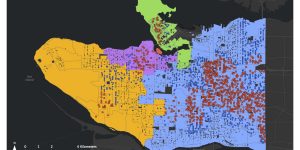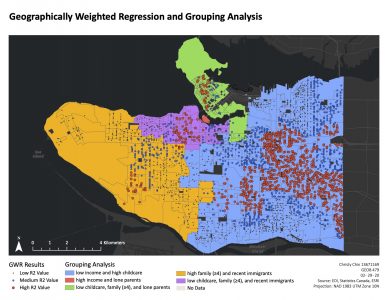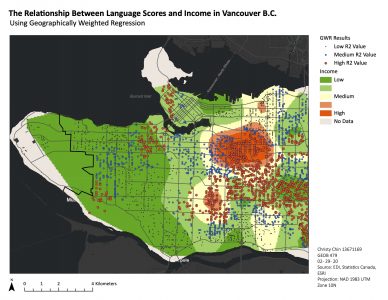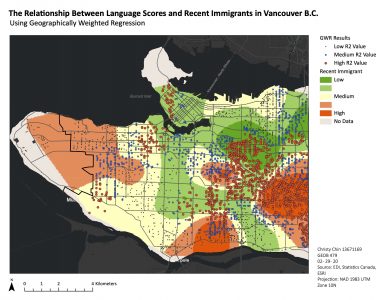The Early Development Instrument (EDI) is a questionnaire used by Kindergarten teachers to evaluate early child development. It is a tool used to monitor the development patterns in the child population at varied geographies.
The analysis uses point data to compare the relationship between a child’s language skill and different factors that may have an influence on a child’s development. Variables that were considered included family background and neighbourhood influences. Two types of regression analysis were used to allow us to apply the correlations between a child’s development and the different factors into the global scale and local scale of Vancouver.
In the analysis, we have used ordinary least squares (OLS) and geographically-weighted regression (GWR) to determine the relationship between language scores and factors that affect a child’s development across Vancouver. Our dependent variable was language scores while the independent variables were recent immigrants, lone parents, incomes, family size (4 or more) and childcare.
There are many factors that could have an influence on a child’s development and growth. The factors, however, are interconnected and complex. There is no definite answer that can prove that one factor is more impactful than another without taking into account all the other variables.




Learning Significance